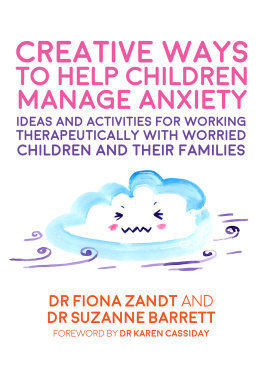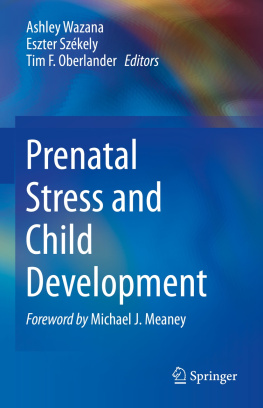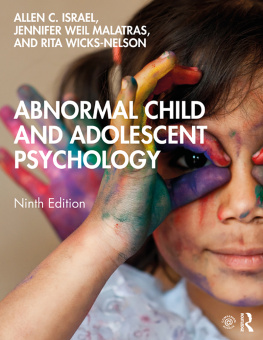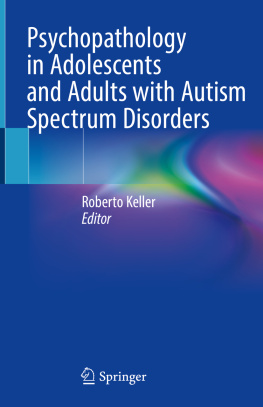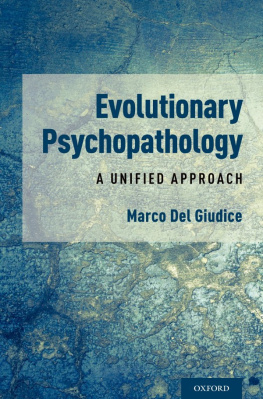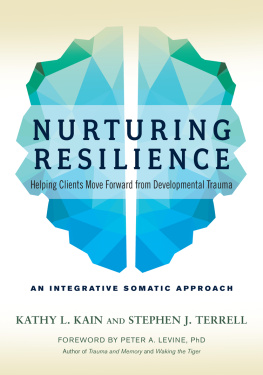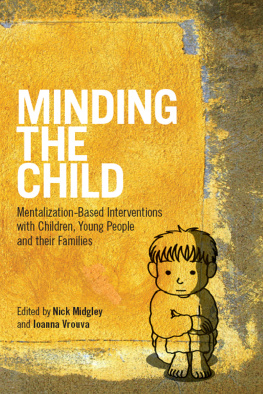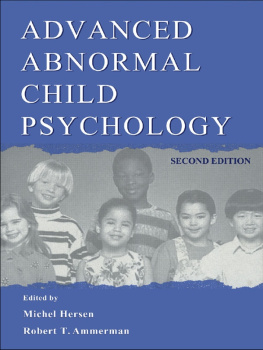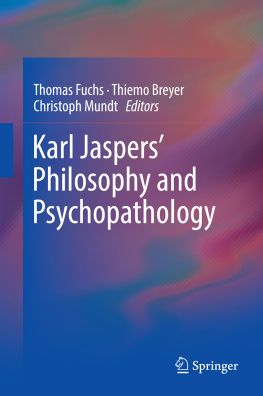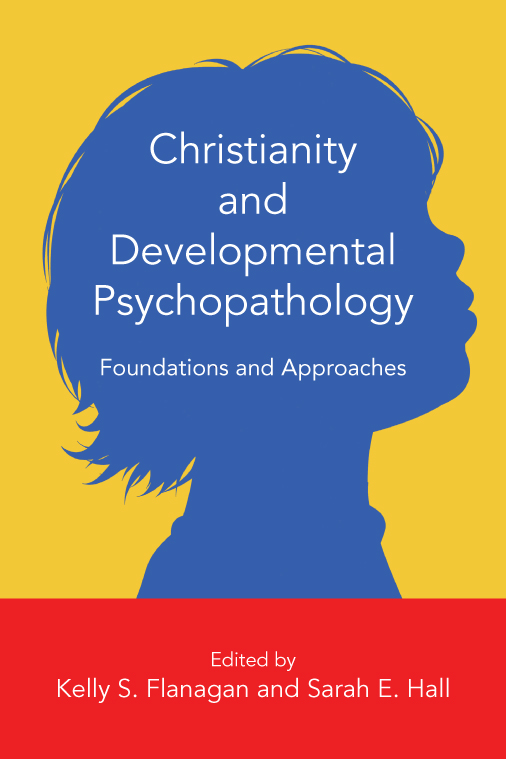Theres a difference between knowing an idea and knowing an experience. I dedicate this book to my grandparents, who helped me experience the ideas in this book. I also dedicate it to my children, Aidan, Quinn and CaitlinI hope I can pass that legacy on to you. KSF
To my husband, Ryan, and my parents, Bruce and Judy, for your love and support. SEH
InterVarsity Press
P.O. Box 1400,
Downers Grove, IL 60515-1426
World Wide Web: www.ivpress.com
Email:
2014 by Kelly S. Flanagan and Sarah E. Hall
All rights reserved. No part of this book may be reproduced in any form without written permission from InterVarsity Press.
InterVarsity Press is the book-publishing division of InterVarsity Christian Fellowship/USA , a movement of students and faculty active on campus at hundreds of universities, colleges and schools of nursing in the United States of America, and a member movement of the International Fellowship of Evangelical Students. For information about local and regional activities, write Public Relations Dept., InterVarsity Christian Fellowship/USA, 6400 Schroeder Rd., P.O. Box 7895, Madison, WI 53707-7895, or visit the IVCF website at www.intervarsity.org .
All Scripture quotations, unless otherwise indicated, are taken from THE HOLY BIBLE, NEW INTERNATIONAL VERSION, NIV Copyright 1973, 1978, 1984, 2011 by Biblica, Inc. Used by permission. All rights reserved worldwide.
While all stories in this book are true, some names and identifying information in this book have been changed to protect the privacy of the individuals involved.
The Twelve Thriving Indicator Wheel in figure 7.1 is used courtesy of Thrive Foundation for Youth.
Cover design: Cindy Kiple
Images: jpa1999/Getty Images
ISBN 978-0-8308-9587-8 (digital)
ISBN 978-0-8308-2855-5 (print)
Contents
Introduction
Kelly S. Flanagan and Sarah E. Hall
The King will reply, Truly I tell you, whatever you did for one of the least of these brothers and sisters of mine, you did for me.
Matthew 25:40
Because each child brings a different story to the tapestry of creation, there is no way to describe the totality of childhood. Yet one response to the God who creates in freedom is to listen to as many of their stories as possible, to be changed by their different refrains and opened to those children anew.
Jensen, 2005, p. 129
The task of integrating ones Christian faith with ones clinical work can be challenging; adding to the challenge for clinicians who work with children and adolescents is the dearth of thoughtful, in-depth integrative writing that directly addresses therapeutic work with youth and their families. As we have worked with families in clinical settings and taught students in academic settings over the past decade, the need for further integrative child clinical literature has become more and more apparent to us. We embarked on this book in an effort to organize our own thinking about the integration of our faith with our work as child clinicians as well as to contribute to the sparse literature. As we have worked on the book, we have been grateful for valuable resources upon which to draw and build. In teaching child psychology classes each semester to undergraduate and graduate students, we have utilized material from numerous resources and past integrative writing (e.g., Journal of Psychology and Christianity, 22, 2003) to help us and our students think about how to integrate psychological theory and practice with our faith, our experience with children and our own childhoods, and our particular, personal journeys in integration (Moriarty, 2010; Tan, 2001). We have learned so much from our students and class discussions. We have been lucky to come across excellent writings by theologians who care deeply about children and adolescents and their families that have informed our thinking. We feel blessed to have been raised by developmental psychopathologists (in academia and in clinical settings) who value understanding the multifaceted nature of the stories that children bring to us in our clinical work. What wonderfully created beings, what diversity within Gods creation, and what a calling to work with the least of these! In proposing this book, we desired to synthesize and share some of this rich learning and perspective with readers.
Therefore, the purpose of this book is to integrate a Christian viewpoint with developmental understandings of child psychopathology in order to provide a theoretically and empirically sound background to help developing and practicing Christian mental health professionals work competently with children, adolescents and families. Integrative approaches for understanding the development of psychopathology in children from a Christian perspective are lacking, despite strong integrative work focused on psychological disorders and treatments in adults (e.g., Jones & Butman, 2011; McMinn & Campbell, 2007; Yarhouse, Butman & McRay, 2005) and calls over the past decade for increased attention to this underserved population (Canning, Case & Kruse, 2001; Hathaway, 2003; Sisemore & Moore, 2002; Yangarber-Hicks et al., 2006).
In a recent look ahead at the future of applied integration with children and adolescents, Walker (2012) describes the status of this integrative work as being in its infancy. In response to the nascent status of this field, we agree that applied integrative efforts should combine spirit led, Biblically based theology with high quality empirical psychological science to include what both theology and psychology can offer (p. 138). However, we also believe that these approaches must be informed by a thoughtful and coherent theoretical foundation that is developmentally sensitive; Flanagan and Canning (in Yangarber-Hicks et al., 2006) have argued that developmental psychopathology provides such a framework. We hope that this book will be useful to practicing Christian therapists, faculty and students, and researchers by providing a Christian perspective on a major guiding theoretical framework for work with children and families. We aim to integrate current research and thought within child clinical psychology with theological explorations of childhood and the child in order to provide guidance for a more holistic conceptualization of childrens and families presenting problems and their etiology.
The first chapter of this book provides an overview of developmental psychopathology and defines its guiding principles and concepts. Developmental psychopathology represents a holistic theoretical framework that incorporates consideration of biological, sociocultural and psychological influences on the development of health and disorder over time. Since its introduction in the early 1980s, developmental psychopathology has become one of the most influential frameworks within child clinical psychology; however, no work of which we are aware has integrated this framework with a Christian approach to psychopathology. As we will demonstrate, developmental psychopathology provides a holistic framework in which children are understood as having individual characteristics that interact with influences in their particular environments, such as family, peer and school, and broader cultural contexts. Exploring the effects of these contexts on childrens development, particularly in light of the concepts of pathways and mechanisms across time, is crucial to our understanding of the development of psychopathology as well as childrens current functioning and presentation within clinical settings. The crucial role of these developmental influences makes the study of psychopathology in childhood qualitatively different from that in adulthood.


